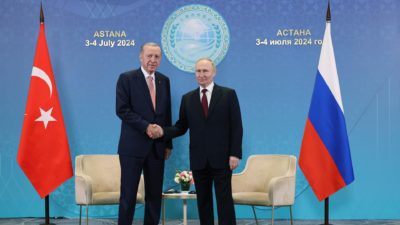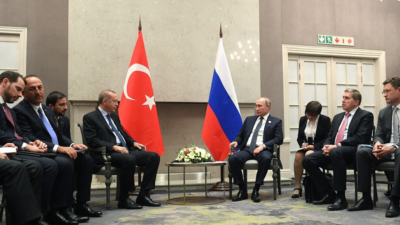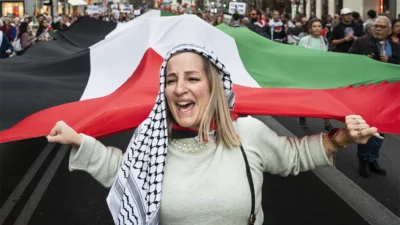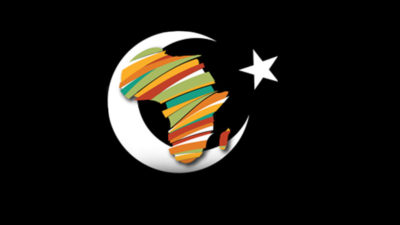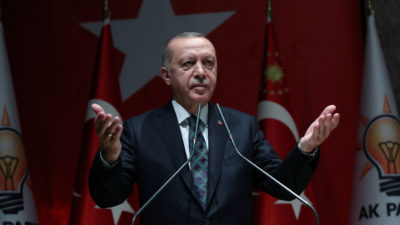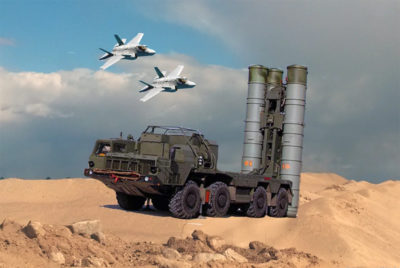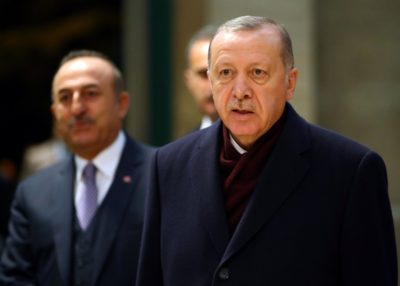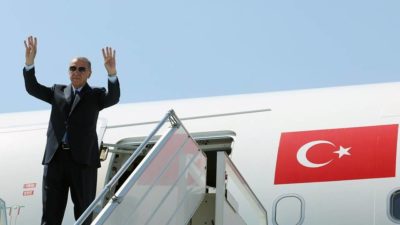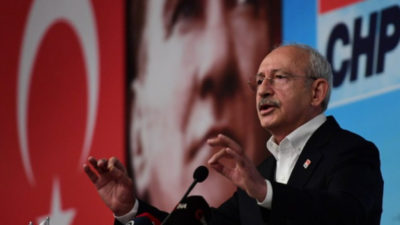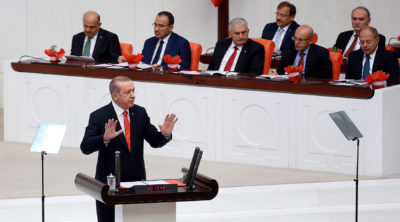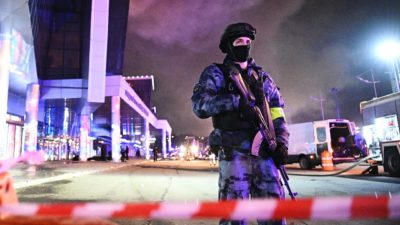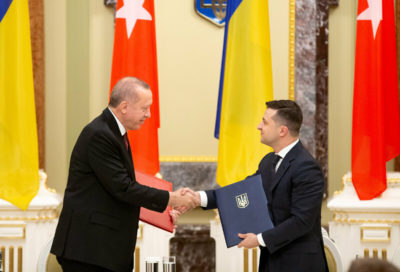Russia and Turkey have exchanged views
The meeting of the Russian and Turkish heads of state at the SCO summit in Astana did not resolve all existing issues, but showed ‘progressive development’ of bilateral relations…
Тurkey is examining the prospect of BRICS membership
Turkey’s advantageous geography makes it an attractive participant in important international organisations, which strengthens the country’s sovereignty. BRICS is gaining geopolitical and geo-economic momentum and Ankara is considering with whom and in which direction it should go…
Turkey welcomes, but does not yet itself join…
The Arab-Israeli conflict will end someday, but the crisis itself will not be resolved unless Palestinian statehood is recognised. Turkey welcomes the beginning of the process of recognising the independence of Palestine, but has itself not yet joined in those efforts. Why?
Turkish expansion in Africa Part Two: Basic Directions and Instruments of Turkish Policy in Africa
Turkish engagement with the continent, the African Institute for Policy Studies of the Federal Republic of Germany notes, is based on economic development, military co-operation, humanitarian aid, cultural and religious ties, and the training of African personnel…
Developments in Türkiye – is Erdoğan “sowing the wind” and “reaping the storm”?
World history shows that an independent policy of a charismatic leader of an important state often leads to a foreign interference, i.e. a coup d’état and the overthrow of the undesirable ruler. When all the “arguments” of diplomacy and economic pressure fail to achieve their goals, they use covert operations of special services and subversive organizations under their control to carry out a coup d’état as legitimate or illegitimate removal of the current leader from power. In this regard, Türkiye has quite a lot of experience in internal political intrigues and external interventions with successful and failed attempts to overthrow the legitimate government.
Turkey Continues ‘Maneuvering Diplomacy’
It is no secret that since the times of the Ottoman Empire, Turkish diplomacy, especially after the onset of the decline of the Sublime Porte at the beginning of the 19th century, commenced adapting to the international conjuncture and ‘maneuvering’ between different centers of power (in particular, between Britain, France, Germany and Russia). This tendency, on the one hand, was determined by the weakening of Turkish…
Erdoğan talks about a new order in Transcaucasia
On his return from Iraq, on the eve of the 109th anniversary of the Armenian genocide, Turkish President Recep Erdoğan announced the establishment of a “new order” in Transcaucasia. The essence of his thesis seems to be addressed to Armenia, which, as Nöbetci Gazete notes, is being advised by the Turkish leader to discard unfounded memories and act on the basis of the realities of the present…
The Imminent Turkish-American Summit and Russia
Turkish President Recep Tayyip Erdoğan is expected to pay an official visit to the United States on May 9 to meet with his American counterpart, according to officials. It should be noted that this visit will be Erdoğan’s first visit to the United States during the years of Joe Biden’s presidency. The very fact of the visit and talks between the leader of an important regional country, as Turkey is, and the head of the collective West, the US President, is of particular interest in world diplomacy. Given the uneasy relations between Turkey and the United States during Erdoğan’s rule…
Domestic political transformations in Turkey
Although in its domestic political development Turkey has not yet reached the standards of European democracy, it has made significant progress in terms of the political competition between the leading parties, respect for voters’ civil rights and the transparency of elections. The municipal elections held on March 31, 2024, which resulted in a landslide victory, albeit with a narrow margin, for candidates from the main opposition party, the Republican People’s Party (CHP), can be cited as a good example of how far Turkish democracy has developed…
Turkey and the "3+3" Format Prospects
Turkey demonstrating an active foreign policy aimed at raising its status from a regional state to a major power and leader of the Turkic world. Its diplomacy synthesizes several complementary doctrines: “neo-Ottomanism,” “neopanturanism,” “Turkish Eurasianism,” and “Turkish axis.” Ankara realizes that NATO membership guarantees its strategic safety against external threats from key anti-Western countries. At the same time, the Turkish political elite realizes that the West is particularly reluctant to see Turkey as a member of the European Union and will stretch the time of European integration. Ankara prefers, forcedly or by choice…
The Terrorist Attack in the Moscow Region and the Turkish-Russian Partnership
The terrorist attack on the Crocus City Hall concert venue and the numerous innocent victims have made March 22 a new black day in the calendar of atrocious crimes against humanity. Russia is not a country that can forgive such a crime against itself and, of course, retribution against the organizers and perpetrators is inevitable. The whole question presently relies on the time needed for an objective investigation of the criminal case of “March 22,” but the forms and means of response by the Russian security services will not make us wait long…
Turkish "support" for Ukraine
From the very beginning of Zelenskyy’s presidency, Ukraine was (and still is) both a window of opportunity for Turkey and an extremely delicate area of manoeuvring between Russia and Western countries. Turkish leader Recep Tayyip Erdoğan meets regularly with Ukrainian President Volodymyr Zelensky. The Ukrainian president has travelled to Istanbul or Ankara once a year since 2019 (with the exception of 2022), while Recep Erdoğan visited Kiev in 2020 and twice in 2022…
